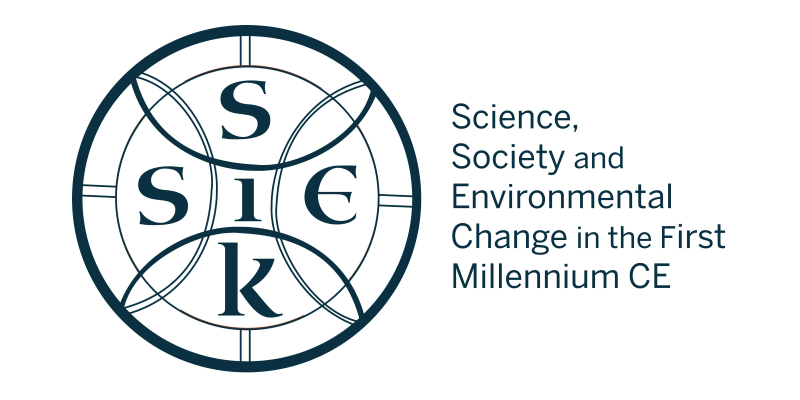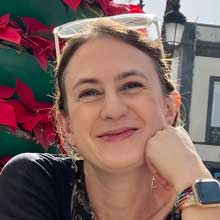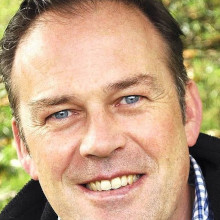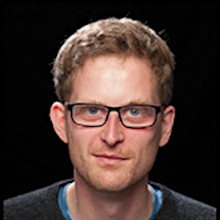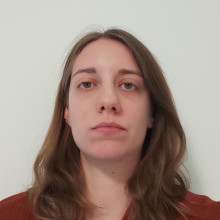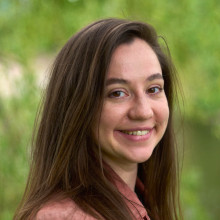SSE1K
Science, Society and Environmental Change in the First Millennium CE
Project
The Mediterranean in the first millennium CE saw environmental and climatic changes which have been identified as causes for significant short- and long-term societal and political processes and events, such as the rise and fall of empires.
SSE1K examines textual, archaeological and environmental evidence to investigate human experiences of environmental and climatic variation in the Mediterranean in the first millennium CE, focusing in particular on how people responded both intellectually and socially to these changing conditions. The project considers the complex relationships between people and their environments, especially in relation to how human perceptions and ways of thinking shaped societal, political and religious responses to environmental and climatic change, and explores issues such as how the circulation of knowledge and adaptability intersect with sustainability and resilience in pre-modern societies.
Research
Written sources
Helen Foxhall Forbes, Vicky Manolopoulou and Massimiliano Borroni are looking at a variety of written sources from across the Mediterranean region relating to intellectual and social responses to climatic/environmental change in the first millennium, aiming to integrate this textual evidence with palaeoenvironmental data. Vicky Manolopoulou will look at responses to perceived catastrophes and climate emotions in Byzantium. Massimiliano Borroni will focus on Arabic sources, particularly from the Islamic West, seeking relevant information on agricultural practices in this region and on climatic events that may have been documented in these texts. Helen Foxhall Forbes will review evidence of climatic events and possible consequences, such as crop failures for example, and how societies tried to tackle these difficulties, especially looking at sources about the Italian peninsula and nearby territories during late antiquity.
Archaelogical data
Dan Lawrence, Michele Abballe and Anastasia Nikulina specialise in landscape, digital, and environmental archaeology. Dan Lawrence and Michele Abballe are responsible for collecting archaeological data to reconstruct population dynamics and settlement strategies in the long term. In conjunction with Helen Foxhall Forbes, they will identify smaller case-study areas for focused investigation and produce large-scale models of human-environment relations across the Mediterranean. They will also integrate textual evidence from the Western Mediterranean into the datasets, utilising GIS and remote sensing as well as other computational approaches. Anastasia Nikulina specialises in archaeological data science and will undertake agent-based modelling (ABM) of social-ecological systems. Archaeological data provided by Michele Abballe will serve as a baseline for settlement patterns, while textual evidence collected by the team will be used to inform the assumptions in the ABM.
Proxies
Dominik Fleitmann, Dan Lawrence and Ismini Lipiridou will work with existing large-scale datasets to review scholarship relating to established climatic conditions and fluctuations in this period, and will select a number of extreme events as case studies. Dominik Fleitmann and Ismini Lipiridou will develop new high-resolution speleothem-based hydroclimatic reconstructions from key sites in the Mediterranean region. They will also reconstruct large-scale land use and work with Vicky Manolopoulou to identify and incorporate relevant textual material for comparison with the palaeoenvironmental records.
Events
2026
8-10/09/2026 - "Knowledge, Resilience and the Environment in the Mediterranean, 1-1000 CE", Venice
Call for papers or posters by 22/02/2026
We invite proposals for papers and posters which address issues relating to knowledge and/or resilience in relation to the environment in the Mediterranean in the first millennium CE, and especially encourage submissions which examine social and/or intellectual responses to environmental changes.
We aim to open up debate about the extent to which climatic and environmental fluctuations caused significant problems for communities and societies, in order to understand better the causal links between human activity and experience and environmental fluctuations, and to consider how to move away from simple narratives of catastrophe and collapse.
Please submit online proposals for posters or 20-minute papers by 22 February 2026. In case of questions please contact Prof. Helen Foxhall Forbes.
Confirmed speakers include Prof. Sabine Huebner, Prof. Kristina Sessa and Prof. Athanasios Vionis.
Some bursaries may be available.
Conference theme
Understanding the relationships between knowledge and resilience is essential for examining complex societies and their responses to short-term events and longer-term processes of environmental change. This conference, organised by SSE1K: Science, Society and Environmental Change in the First Millennium CE (ERC Consolidator Grant 101044437), aims to address the relationships between knowledge and resilience in relation to climatic and environmental conditions in the Mediterranean in the first millennium CE, particularly focusing on how people in this period responded in different ways to environmental fluctuations and challenges.
Climatic and environmental fluctuations have been posited as factors in societal and political developments and disruption which occurred across the Mediterranean in the first millennium CE, such as the rise and fall of empires, migration, epidemics, or changes in settlement patterns. Many of the scholarly narratives relating to climatic and environmental variations in the first millennium CE have stressed collapse and catastrophe, but often the persistence and continuation of societies and communities despite significant environmental and climatic variations instead indicates resilience, and suggests that people and institutions possessed and passed on certain kinds of knowledge which was required to support resilience.
All societies have a repertoire of situational responses which can be deployed in relation to crises, events or hazards which have the potential to affect societies significantly (e.g. war, extreme weather, interannual climate variation), whether environmentally-related or not. Both the nature of that knowledge and how it is passed on can be crucial in enabling societies to prosper or survive. Some aspects of this knowledge are intellectual, and may be ‘scientific’ in that they attempt to explain the natural world and build on a scholarly written tradition of analysis and observation, for example in relation to natural events like earthquakes. Other aspects of knowledge are societal and held collectively, such as knowledge about which areas are safe from water even at times of extreme flooding.
Social and intellectual aspects of knowledge are linked in complex ways: for example, religious and emotional responses to environmental changes and challenges combine both intellectual and social knowledge and may relate to social and community resilience, or lack of it. Intellectual and social responses to climatic and environmental conditions must also be understood within frameworks of human perception and lived experience, not least because they shape and influence the human-produced evidence that survives for examining these responses.
Sometimes, however, knowledge and established resilience responses are not enough: even resilient societies have their limits. It is also important to understand the complexities and nuances of how and why resilience strategies failed, rather than simply assuming that significant climatic or environmental fluctuations or events led inevitably to collapse, decline or catastrophe. The nature of the causal dynamics in such circumstances is complex rather than simple and demands further investigation.
Issues for discussion
- Resilience responses to long-term or short-term environmental changes, such as intellectual, scientific, religious, emotional, political, social, community or civic responses
- Scientific study of the natural environment as a dynamic system and of instances of environmental change
- Societal knowledge relating to environmental or climatic changes
- The relationship between scientific or scholarly knowledge and agricultural / environmental practice
- Agricultural knowledge in different socio-environmental contexts and conditions
- Adaptive and sustainable practices as form of knowledge supporting societal resilience and resilience responses
- The adaptation of technology and engineering in response to changing environmental conditions
- Long-term or short-term climatic or environmental changes in the Mediterranean in the first millennium CE
- Human-caused environmental changes and knowledge about / responses to them
- The use of computational modelling for understanding human-environment relationships
- Methodological approaches for interdisciplinary study of human-environment relationships
- The failure of resilience responses: the ‘how’ and ‘why’ of collapse or catastrophe
October 2025-July 2026 - People and their Environments in the First Millennium CE
Seminar series
This seminar series focuses on relationships between people and their environments in the Mediterranean in the first millennium CE. The papers explore social, intellectual, religious and political contexts from around the Mediterranean in the first millennium CE, and draw on evidence and methodologies from the disciplines of history, archaeology and environmental science. The seminars will all take place online; one seminar (10th November, Prof. Alessandro Fontana) will also be an inperson event (and therefore hybrid).
2025
2024
- 18/10/2024 - Michele Abballe, “Lagoons, Marshes, and Swamps in the Roman and Late Antique Ravenna Greater Region: Settlement Patterns and Environmental Transformations”
- 5/09/2024 - Razieh S. Mousavi at "The 11th Conference of the European Society for the History of Science (ESHS)" in Barcelona, Spain
- 4/07/2024 - Vicky Manolopoulou: ‘Processing Crisis: Memorialisation and Disaster Management in Byzantium’, International Medieval Congress Leeds 2024
- 1/07/2024 - Helen Foxhall Forbes: 'The Bishop and the Letter: Experimental Responses to Flooding in 6th-Century Italy ‘, International Medieval Congress Leeds 2024
|
|
24 and 28/02/2024 - Michele Abballe at "Cervia Archeologica 2024" [ITA]
24/02/2024 - “Cervia al centro dell’archeologia europea: il progetto PRIN22 Ambiente, insediamento e produzione. L'interazione uomo/ambiente nei paesaggi produttivi dell'Italia medievale” 28/02/2024 - “Mani in ‘terra’: dal record sepolto alla ricostruzione del paesaggio cervese” |
421 KB |
|
|
03/02/2024 - Michele Abballe, “Nuovi dati geoarcheologici dalla Cassa di Colmata del Lamone” [ITA] | 91 KB |
2023
Team
Staff
Helen Foxhall Forbes
Ca' Foscari University of Venice, Italy
Project Principal Investigator - Full Professor
Short bio
Helen Foxhall Forbes is Full Professor of medieval history and PI of SSE1K. She studied Anglo-Saxon, Norse and Celtic at the University of Cambridge (2001-2008) and Theology at the Albert-Ludwigs-Universität, Freiburg-im-Breisgau (2007-2008). Subsequently she held posts at the universities of Cambridge (2008-2009), Leicester (2009-2012), Exeter (2012-2013) and Durham (2013-2022). Her research focuses on Europe and the Mediterranean from late antiquity to the early Middle Ages. Her particular research interests include environmental history and the links between human beings and their environments, the history of Christianity and of Christian theology, as well as intellectual history and the history of science. Her first book, Heaven and Earth in Anglo-Saxon England: Theology and Society in an Age of Faith (2013), was funded by a Leverhulme Early Career Fellowship held at the University of Leicester. This research demonstrated the important connections between theology and its social context in early medieval England. She is a member of the Bova Marina Archaeological Project and has been involved with excavations in Calabria since 1999. She is also a member of the international advisory board for the Richard Rawlinson Center for Anglo-Saxon Studies and Manuscript Research (Western Michigan University, Kalamazoo, MI) and a Fellow of the Royal Historical Society.
Michele Abballe
Ca' Foscari University of Venice, Italy
Post-doc
Short bio
Michele Abballe obtained a PhD in Archaeology from Ghent University (BE), as part of a Joint Programme with the University of Verona (IT), focusing on reconstructing the diachronic evolution of the hinterland of Ravenna through geoarchaeological methods (2023). Between 2022 and 2023, he worked on remotely sensed data as a Post-graduate Research Fellow at the Institute of Atmospheric Sciences and Climate (ISAC), National Research Council (CNR) of Italy. Prior to his PhD, he worked in commercial archaeology for six months after completing his BA and MA in Archaeology at the University of Bologna (2011-2017), with research stays at the University of Leicester (UK) and Leiden University (NL). Michele currently leads the GEOARCHAMMI project (GEOARCHAeological Mapping with VHR Multispectral Imagery) supported by ESA (2022-2024). Additionally, he is respectively co-director and field director of RecLands (since 2023) and Faventia (since 2019) projects, studying settlement patterns evolution in the plain north of Ravenna and Faenza with a strong focus on human-environmental interactions over the long term. As part of the SSE1K project, Michele is investigating how settlement patterns in the Western Mediterranean coped with climate and environmental variations during the 1st millennium CE, combining available archaeological data (such as settlement data and C14 dates) with natural proxies (such as hydroclimatic reconstructions and pollen data).
Massimiliano Borroni
Ca' Foscari University of Venice, Italy
Researcher
Short bio
Massimiliano Borroni is a researcher in the History of Islamic Countries at Ca' Foscari University of Venice. He teaches in the course "Environments and Societies of the Islamicate Countries" in the Environmental Humanities master degree. Massimiliano obtained his PhD focusing on the Iranian calendar and its New Year during the Abbasid period, examining its fiscal and cultural dimensions. Following his doctoral work, he shifted his research to the conceptualizations of the environment in the premodern Arab world, particularly related to water. His work delves into thought concerning hydrology, meteorology, and the water cycle, with a focus on scholars like Thābit b. Qurra, al-Bīrūnī, and Abū al-Barakāt al-Baghdādī, as well as other authors beyond strictly scientific or philosophical texts. His current research interests include traditional irrigation techniques, the role of the sea in creation, the physical behavior of water, and years when historical sources indicate climatic anomalies with a shifting focus from the Iranian and Mesopotamian regions to the Islamic Mediterranean.
Dominik Fleitmann
University of Basel, Switzerland
Full Professor
Short bio
Dominik is Full Professor in Quaternary Geology, at the Department of Environmental Sciences of the University of Basel, Switzerland. As a Quaternary geologist and palaeoclimatologist, Dominik is working on a variety of climate archives, including speleothems (stalagmites, flowstones), lacustrine sediments, spring carbonates and corals from Europe, the Middle East and the Indian Ocean. One primary goal of his research is to construct precisely-dated and highly-resolved time series that provide new insights into climatic and environmental processes over a variety of geologic timescales, ranging from seasonal to glacial/interglacial cycles. It is therefore not surprising that his research interests and experience span a wide range of topics from paleoclimate, geochemistry, hydrology, biology, meteorology to archaeology and climate modelling. Because of the strong interdisciplinary nature of my research, Dominik has developed a rich network of national and international collaborations.
Isidora Freris
Ca' Foscari University of Venice, Italy
Project manager
Short bio
Isidora Freris is a Research Manager specialising in EU fund project management. She has a Ph.D. in chemistry (Monash University, Australia) and over twenty-five years of combined experience in academic research, technology transfer, grant writing, and industrial R&D. Her post-doctoral research fellowship undertaken at Ca' Foscari University (Italy) from 2007 to 2013 evolved into the creation of a co-founded technology-based start-up company in 2012, and an independently managed scientific editing company in 2015. In 2023, she returned to Ca’ Foscari University, joining the Research Unit within the Department of Humanities to support ERC grantees with post-award grant management and administration.
Dan Lawrence
Durham University, England
Professor
Short bio
Dan Lawrence is Professor in the Archaeology of Southwest Asia at Durham University in the UK. He studied at UCL and Cambridge before coming to Durham for his PhD as part of the Fragile Crescent Project, supervised by Professor Tony Wilkinson. Dan has remained at Durham ever since, initially as a postdoctoral researcher on the ERC funded Persia and its Neighbours project, and then as Assistant Professor (2015-2018), Associate Professor (2018-2023) and Professor (2023 to present). Dan is a landscape archaeologist with methodological interests in GIS, remote sensing and computational approaches to the past. He is director of the Durham Archaeology Informatics Laboratory, a specialist hub for computational archaeology in the department. His research interests include climate change, urbanism, water management and inequality. He is PI of the CLaSS project, an ERC Starting Grant which investigates the relationship between the emergence of social complexity and climate change across Southwest Asia over the Holocene, and is Co-PI on several projects examining landscape change across Southwest Asia and North Africa. Dan also has interests in heritage management, and is a Co-PI on the Oxford led Endangered Archaeology in the Middle East and North Africa (EAMENA) project.
Ismini Lypiridou
University of Basel, Switzerland
PhD candidate
Short bio
Ismini Lypiridou is a PhD candidate at the Department of Environmental Sciences at the University of Basel. Understanding the complex relationship connecting climate and human activities throughout history has been proven a challenge, especially for the first millennium CE. During this period, the scarcity of high-resolution climate records has inhibited this connection, making it difficult to discern detailed climatic patterns and their impact on human societies. Having generated and worked with paleoclimate reconstruction records during her MSc degree, she will provide the necessary climatic and environmental framework in central and eastern Mediterranean covering the first millennium CE. She will achieve this by examining already published records and developing new high-resolution speleothem-based reconstructions. In addition, she will be focusing on extreme and abrupt climatic events and transitions as case studies for closer investigation of their socio-economic impacts. To do so, she will collaborate closely with the historians and archaeologists of the project and integrate their expertise in interpreting historical and archaeological data with the paleoclimate reconstructions. By combining scientific methods with historical analysis, she aims to contribute valuable insights into the complex interactions between climate dynamics and human activities. Thus, shedding light on the resilience and adaptability of past civilizations in the face of environmental challenges.
Vicky Manolopoulou
Ca' Foscari University of Venice, Italy
Post-doc
Short bio
Her work on human-environment interactions in Byzantium during the first millennium takes place at the intersection of the ecological, affective, and digital humanities. Her core expertise includes liturgical experiences, perceptions of nature (affective ecocriticism), climate emotions, ritual landscapes (including processions and pilgrimage), and the application of digital tools and methods of analysis for the study of Byzantium. In her current post at Ca’ Foscari, she explores how people in Byzantium perceived and responded to environmental change during the first millennium. She is particularly interested in approaching emotional responses to the environment from a historical and landscape perspective. Before her current post, she was part of the History Department at Durham University, where she worked as a Lecturer in Early Medieval History. She has also held research and teaching positions at Princeton University, King’s College London, Northumbria University, and Newcastle University.
Anastasia Nikulina
Durham University, England
Post-doc
Short bio
Anastasia is a computational and digital archaeologist specializing in past human-environment interactions. She obtained her BA (History) and her research MA (Archaeology of North and Central Asia) at Novosibirsk State University (Novosibirsk, Russia). Anastasia completed her PhD at Leiden University (Leiden, The Netherlands) as part of the Marie Skłodowska-Curie Programme, TERRANOVA. Her doctoral research focused on the earliest anthropogenic impacts on European landscapes, specifically the use of fire by Neanderthals and Mesolithic hunter-gatherers. Anastasia’s work bridges diverse spatial datasets via using techniques such as agent-based modelling, GIS and 3D modelling. In her current postdoctoral project at Durham University (Durham, UK), she is developing an agent-based model to investigate human-environment interactions in the Mediterranean during the first millennium CE. This model integrates datasets provided by members of the SSE1K project, including archaeological evidence, written historical sources, and environmental data.
Jakub Sypiański
Ca' Foscari University of Venice, Italy
Research grant holder
Short bio
Jakub Sypiański's research focuses on the intellectual and environmental history of THE early medieval Mediterranean, with particular attention to translations, patronage of science, water management and intercultural transmission of agricultural knowledge.
He obtained his doctorate from the Sorbonne University in 2024 with a dissertation titled "Les vases communicants. Les savoirs scientifiques anciens au sein des interactions entre les pays d’Islam et l’Empire romain d’Orient (640-867)" (The Communicating Vessels: Ancient Scientific Knowledge within the Interactions between the Islamic Lands and the Eastern Roman Empire (640–867), which explored scientific exchanges between the Byzantine Empire and the Caliphate between the 7th and 9th centuries. His interests include the transmission of agronomic knowledge across languages and cultures (especially Greek, Syriac, and Arabic), technical literature such as the “Geoponika”, and the intersections of law, religion, and environment in early medieval Mediterranean water management systems.
Within SSE1K, he studies textual sources on agriculture and hydraulics in Byzantine and early Islamic contexts, aiming to understand how technical knowledge was circulated, adapted, and reinterpreted in times of climatic and societal transformation.

